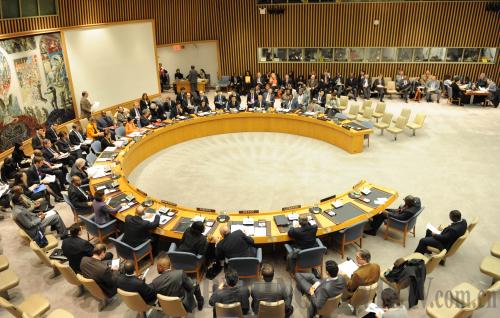|

A new UN Security Council has been unveiled to the world as India, South Africa, Germany, Portugal and Colombia won two-year non-permanent seat on the council.
This changeover means all BRICS nations (Brazil, Russia, India, China and South Africa) are now members of the Security Council—a sign of the rising influence of emerging economies. Also, with the inclusion of Portugal and Germany—along with permanent members Britain and France, Europe gets a bigger voice in the maintenance of international peace and security.
Politics
 |
|
PROTECTING WORLD SECURITY: The UN Security Council discusses tensions in Cote d'Ivoire on December 7, 2010 (XINHUA/AFP) |
Although negotiations and votes on the reform of the UN Security Council are conducted by the UN General Assembly, no one can deny the significant role of the council itself, especially its five permanent members. Countries that aspire to permanent seats on the UN Security Council—India, Brazil, Germany and South Africa—can use the council as a platform to press for reform. They will try to get the support of the five permanent members, win the trust of the international community and pave their way to permanent seats.
With the emergence of the new council, the G4—an alliance among Brazil, Germany, India and Japan for the purpose of supporting each other's bids for permanent seats on the UN Security Council—has been strengthened. The United States has been supporting Japan and India's moves toward permanent seats.
On the other hand, the Uniting for Consensus group—consisting of Pakistan, Mexico, South Korea, Italy and others—has been weakened to a degree. The group aims to counter the G4 nations' bids for permanent seats.
As a result of these factors, the reform of the UN Security Council will face a situation in which radicals will become more active, whereas moderates will become more restrained.
As for specific reform programs, voices advocating an increase in both permanent and non-permanent seats will get increasingly stronger. The impact of this change will soon be revealed in intergovernmental negotiations on UN Security Council reform.
It should also be noted the council is not the best place to talk about its own reform. Excessive talk about the reform will inevitably lead to quarrels and disputes. This can only make things worse.
Furthermore, the performance on the council of the countries aspiring to permanent seats—as well as their interactions with the five permanent members—may also subtly affect reform expectations.
| 